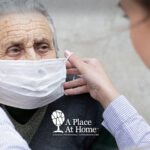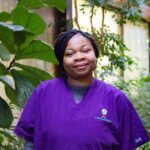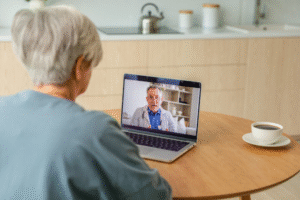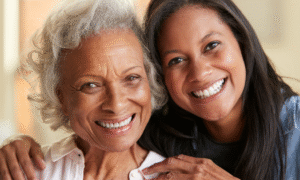
With the coronavirus (COVID-19) outbreak impacting lives across the country, we wanted to share our thoughts to help avoid transmission of COVID-19. The biggest issue is this illness is going to look like a sniffle for many of us. It’s easy for it to go unnoticed and unknowingly spread it. We must go back to the basics and remind all to practice good hygiene to mitigating the risk of infection and to avoid any unnecessary travel.
This disease spreads through small droplets from the nose or mouth which are spread when a person with COVID-19 coughs or exhales. These droplets land on objects and surfaces around the person. Other people then catch COVID-19 by touching these objects or surfaces, then touching their eyes, nose or mouth. People can also catch COVID-19 if they breathe in droplets from a person with COVID-19 who coughs out or exhales droplets. There are a few universal precautions that, if followed faithfully, will significantly reduce our caregiver’s and client’s risk of illness:
A Place At Home (APAH) Caregivers are required to thoroughly clean their hands with an alcohol-based hand rub or wash them with soap and water immediately after entering a client’s home.
Why? Washing your hands with soap and water or using alcohol-based hand rub kills viruses that may be on your hands.
Social Distancing: As much as reasonably possible, caregivers are advised to remain a minimum of 3 feet distance from clients, family and any other people in public spaces. APAH staff are advised to cluster care tasks involving direct client contact together and disinfect immediately thereafter.
Why? When someone coughs or sneezes they spray small liquid droplets from their nose or mouth which may contain the virus. If you are too close, you can breathe in the droplets, including the COVID-19 virus if the person coughing has the disease.
Avoid touching eyes, nose, and mouth.
Why? Hands touch many surfaces and can pick up viruses. Once contaminated, hands can transfer the virus to your eyes, nose or mouth. From there, the virus can enter your body and can make you sick.
Make sure you, and the people around you, follow good respiratory hygiene. This means covering your mouth and nose with your bent elbow or tissue when you cough or sneeze. Then dispose of the used tissue immediately.
Please refer to the video above for additional information about keeping yourself protected. You can also download the Center for Disease Control and Prevention’s workplace, school and home guidance for keeping your space safe.
Our priority is the health and safety of our employees, clients, and the communities in which we operate. Coronaviruses are typically seasonal. We hope that with the warmer weather, flu season ends, and this virus burns itself out. Until then, use these tools to educate those around you on how they can help control the spread or contact us with any questions.






